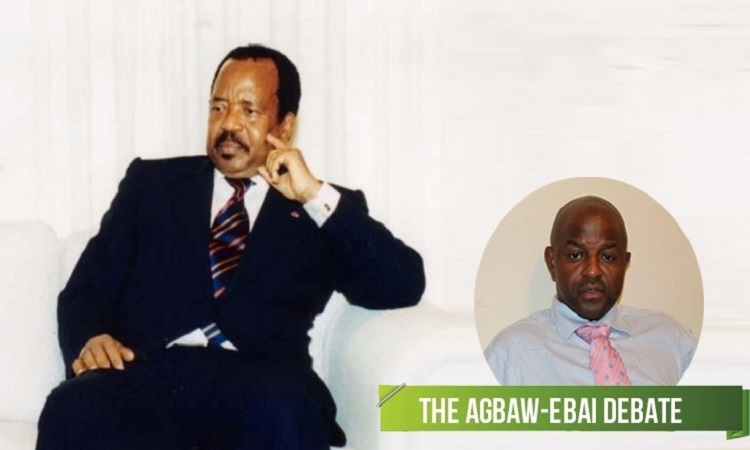Biya is now among citizens with disabilities and embodies all that is wrong with Cameroon
The image that has dominated social media of today’s Africa is ailing President Paul Biya not being able to handover the Africa Cup of Nations trophy to the Senegalese captain. Derision of the 88-year-old Biya on social media is widespread showing a changing media landscape where young Cameroonians are increasingly free to express their discontent publicly.
When Biya arrived the Olembe stadium for the closing ceremony of the Africa Cup of Nations, he was simply a bag of bones and could barely walk. He has been in office since 1982 and will be turning 89 this year.
The Cameroonian dictator has won every election ever since he took office even though he rarely appears in public and without personally campaigning. Many political commentators are now saying that Mr. Biya is unfit to run the country because of his health problems.
A frail pensioner falling off his seat during the opening ceremony of the Africa Cup of Nations in Yaoundé was billed as a triumph for the nation by militants of the ruling CPDM party from his Beti Ewondo tribal extractions. Those of us who watched Biya during the final of the Africa Cup of Nations came to the conclusion that Francophone African nations were badly in need of the gift of shame.
However, the 88-year-old head of state is part and parcel of Cameroon’s history and – with the support of his beautiful wife, Chantal Biya – he was cheered by enthusiastic well-wishers at the Olembe football temple.
The problem as far as the divided Cameroon is concerned is that the so-called father of the nation is set to remain president forever.
Paul Biya’s record of national service is questionable because he has always placed his tribal interest above democratic and economic progress. He is a French acolyte who threw his brother Idriss Deby of Chad under the bus in preference of French backing and to guarantee his continued stay in power. Together with his feared Francophone dominated military and intelligence officers; he has continued to battle Southern Cameroons Restoration fighters committed to creating an independent state in English speaking Cameroon.
Against such a background of violence in Southern Cameroons, Boko Haram incursions in the Far North region and the poor security situation in the East caused by the crisis in the Central African Republic, the appetite for coups or massive street demonstrations is limited in Cameroon. As a pro Yaoundé Southern Cameroonian told this reporter “Moving around Obili and Melen shouting Biya must go is not a wise thing to do in Yaoundé.”
The majority of those living in the cities of Douala, Yaoundé, Garoua, Maroua, Buea, Bamenda and Kumba including Bafoussam certainly want to see Cameroon’s enormous economic potential exploited to solve endemic social problems, including spiralling unemployment and infrastructure crisis. But Biya and his gang are not interested. The nation has everything including foreign reserves from oil and gas but wealth is not distributed evenly.
Cameroon is also of huge strategic importance to Europe and the US, with the Anglo-American empire viewing the country as a key ally in the war against Islamic terror. Correspondingly, with the Russians now in Bangui, Biya is at least a predictable player with whom Europe and the US can work.
From the numerous political discourses on both state and private television houses, it is evidently clear that it is time for proper democratic rule in Cameroon. However, CPDM sources in Yaoundé suggested to this reporter that the Beti Ewondo ruling clan is not ready for change and that key lieutenants still want Biya to remain in power.
Perhaps the most noticeable aspect of the behaviour of the 40-year-old Biya regime during the Africa Cup of Nations was the abiding image of Paul Biya at the Olembe Football Stadium and that summed up the state of Cameroon’s leadership crisis.
By Soter Tarh Agbaw-Ebai





